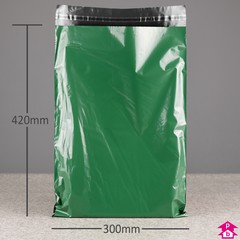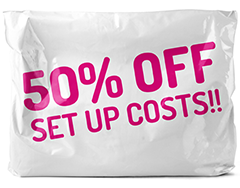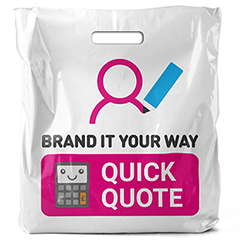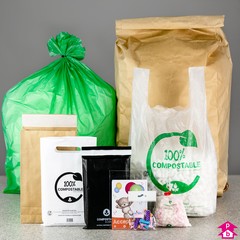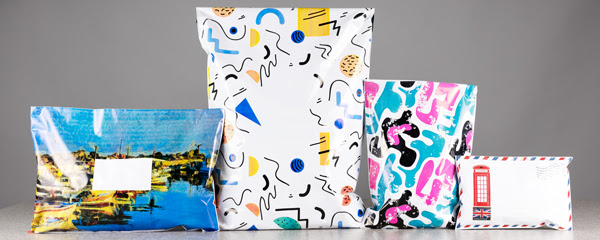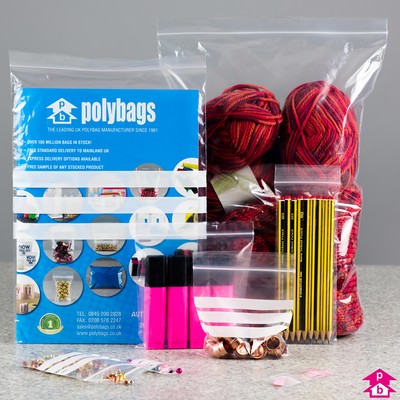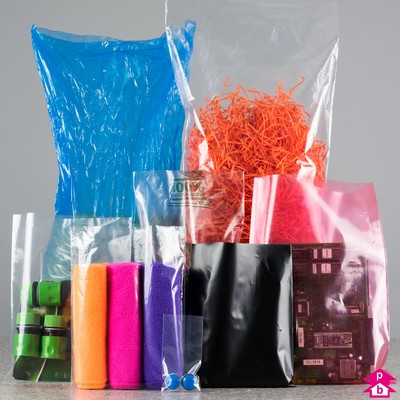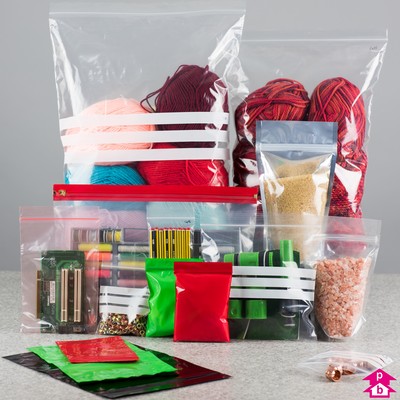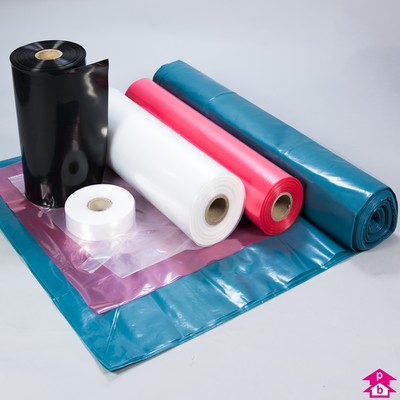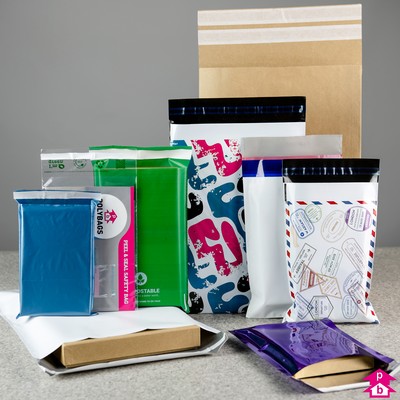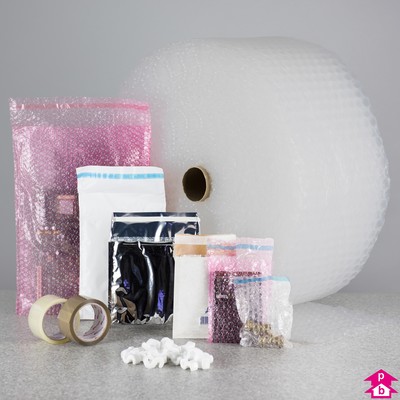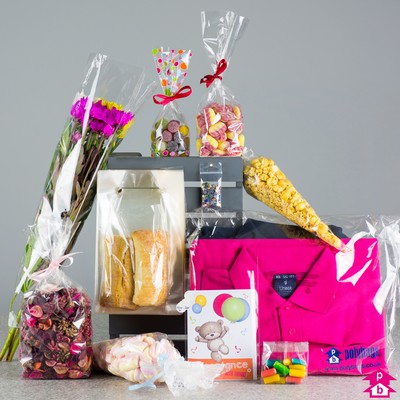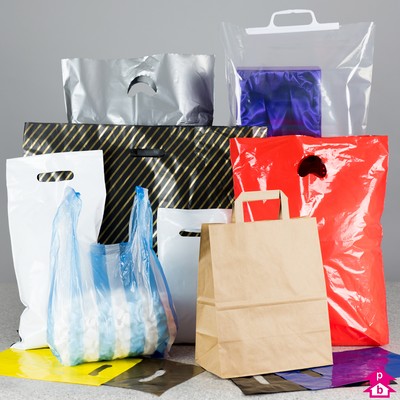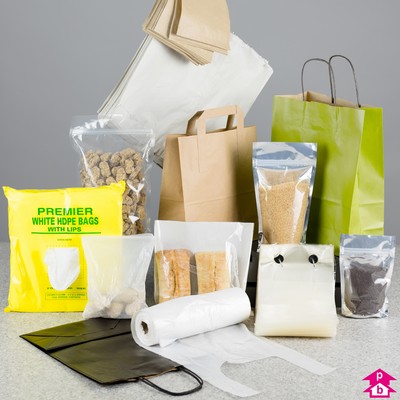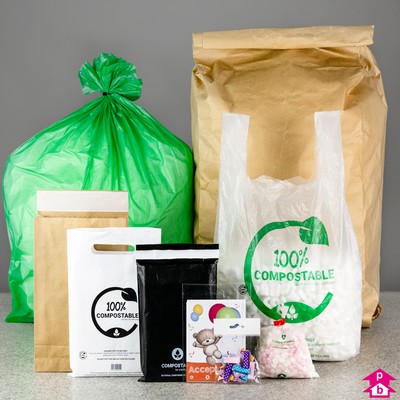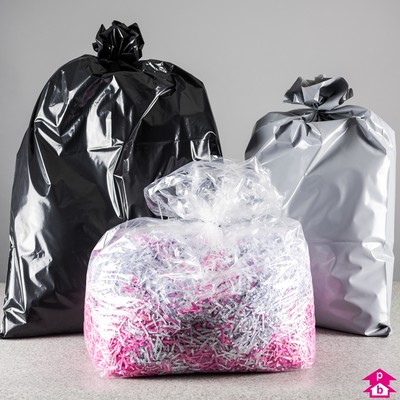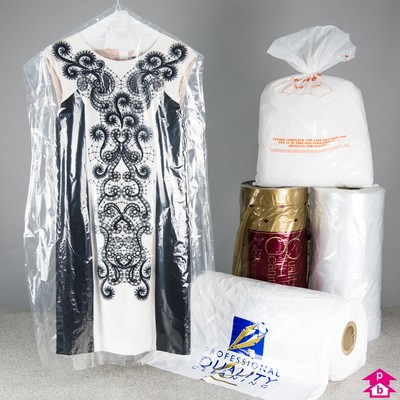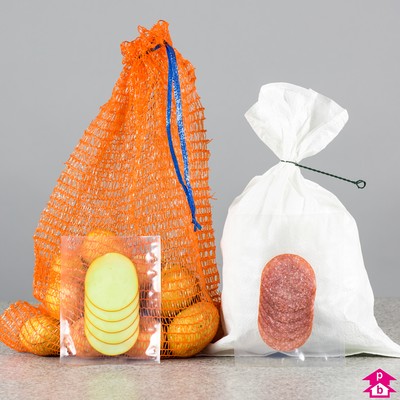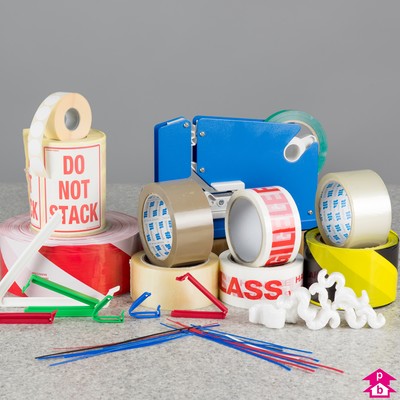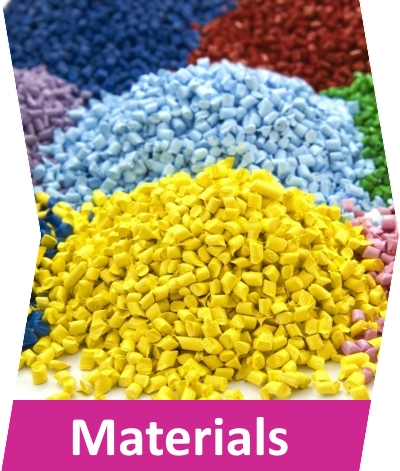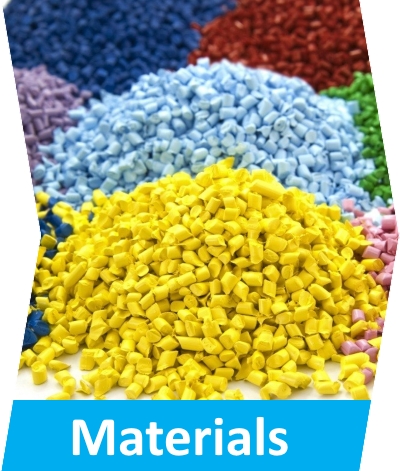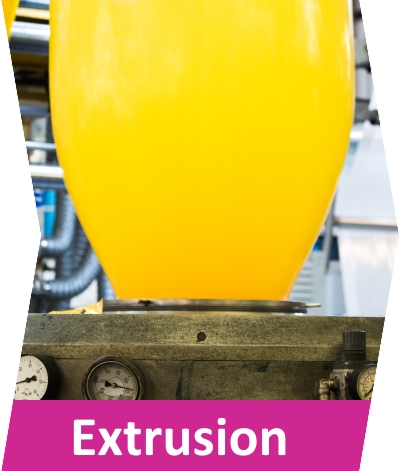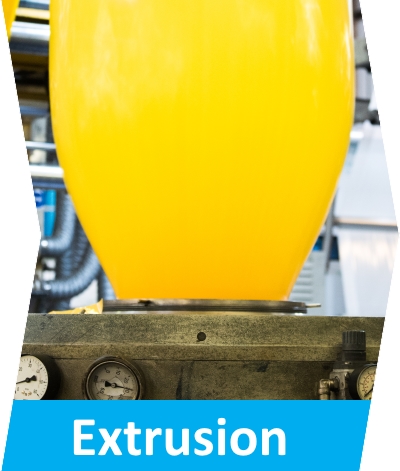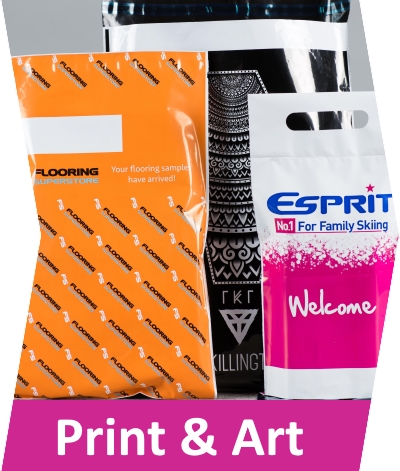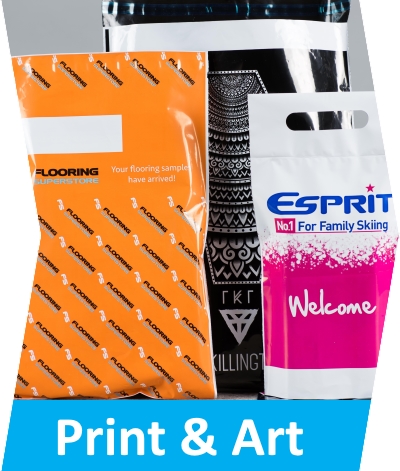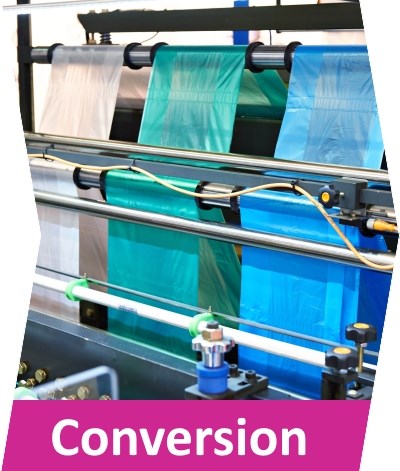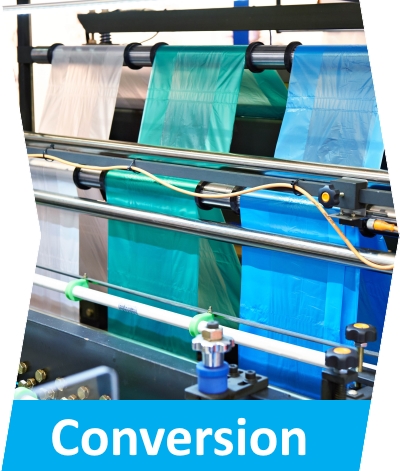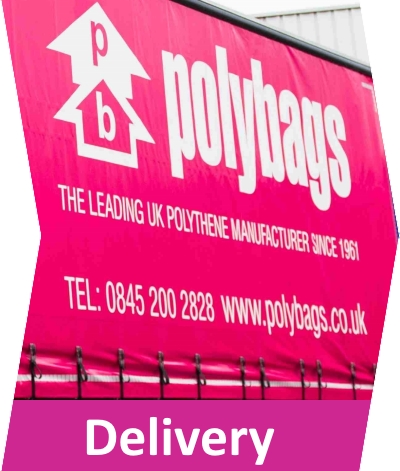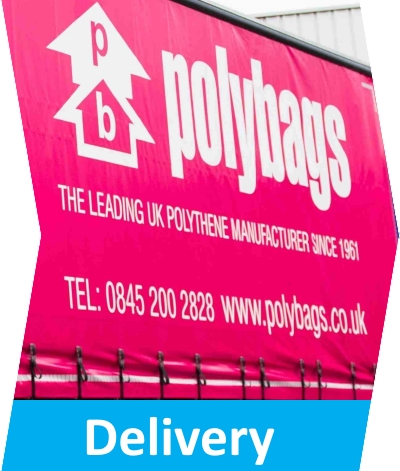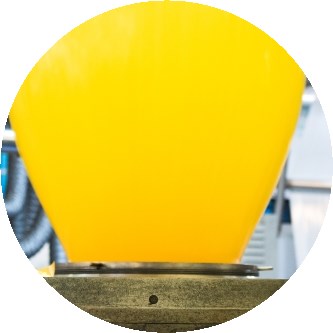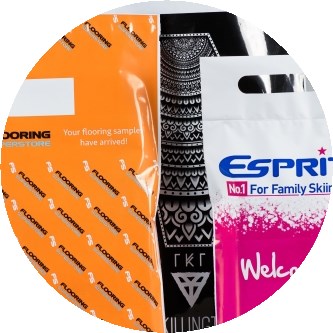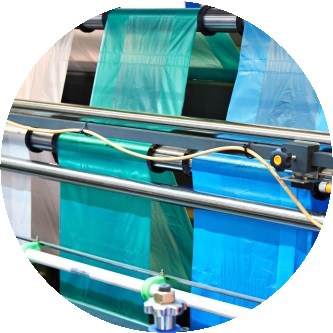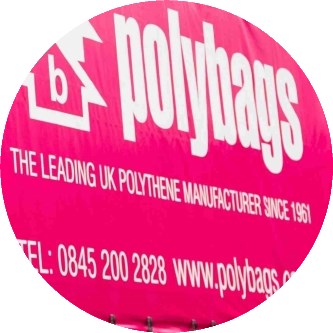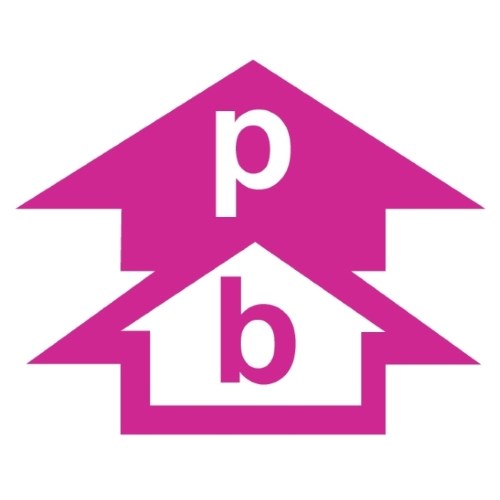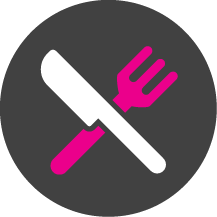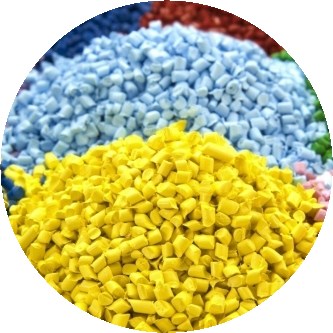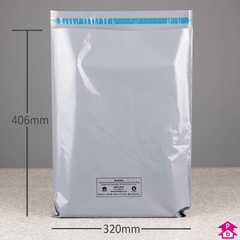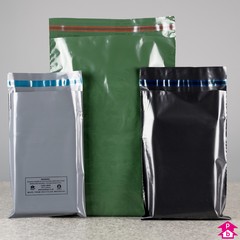300mm wide x 420mm long, 40 micron thickness (Large)
From £24.55 per 200
- 100% recycled
- Biodegradable
- Carbon neutral
- Compostable
- Recyclable
- Renewable
Polythene manufacturing
Polybags is the UK's leading polythene packaging manufacturer.
We produce a huge range of polythene bags and film in-house here at Polybags HQ - please take a look around part of our factory via the interactive 360° image above.
As manufacturers, we cut out the middleman and you deal with us directly, which means you get quality goods at factory prices, with unbeatable value on a huge range of products, including:
Our manufacturing ability also allows us to make products designed specifically for your business, tailored exactly to your needs and printed with your own company design, branding or messaging.
Get a free and instant online quote on printed carrier bags or printed mailing bags now, but we can tailor just about any product you want, so please get in touch for a free no-obligation quotation.
Polybags manage the whole manufacturing process ourselves, from the storage and extrusion of raw materials, right through to the products being despatched to your address - meaning we have flexibility that regular packaging retailers simply do not.
Of course, you don't need to know anything about the manufacturing process as we manage everything for you, but if you would like to find out more, simply click through the wizard below for more information.
The manufacturing process
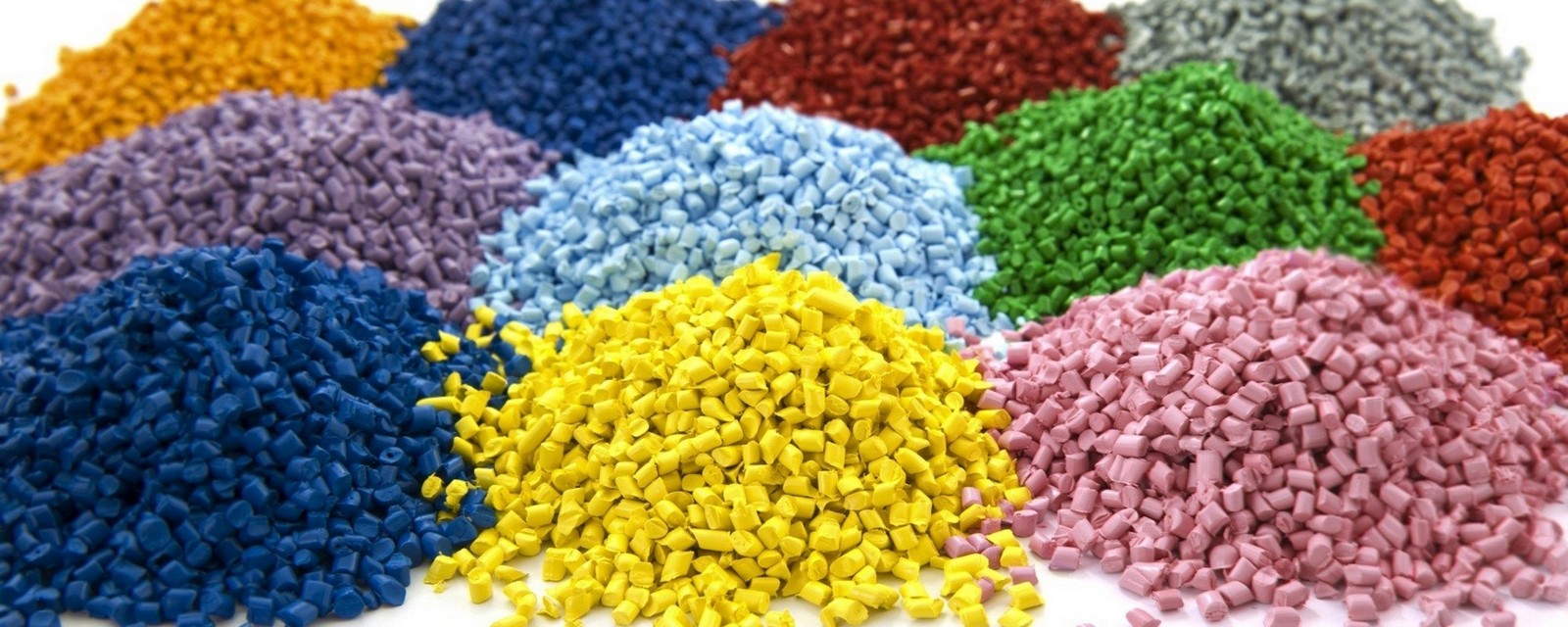
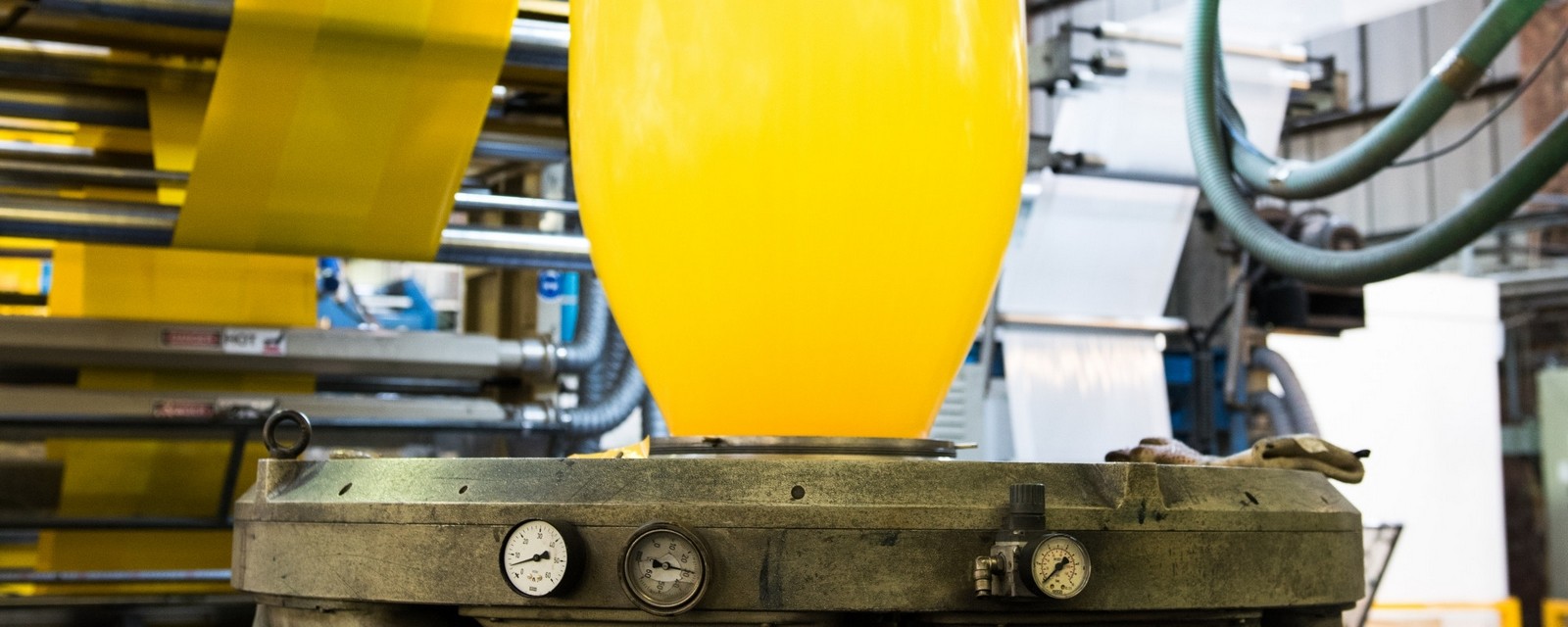
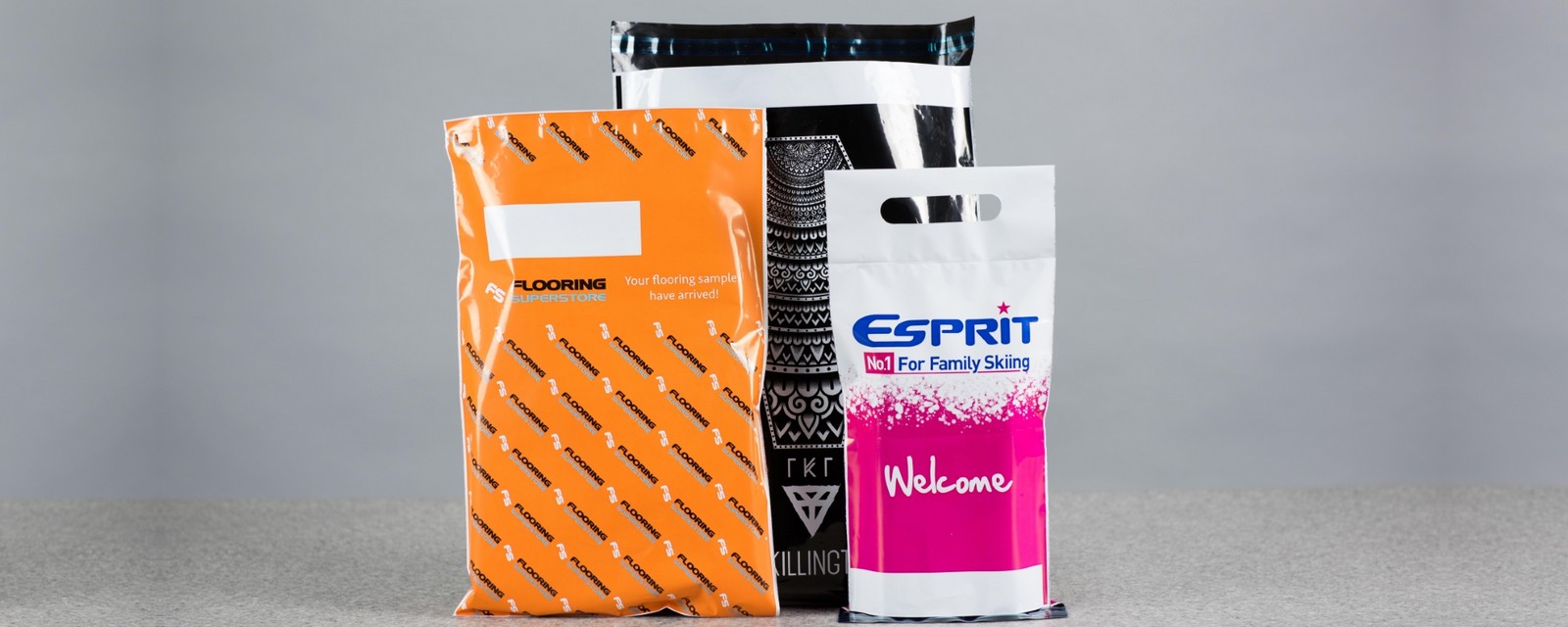
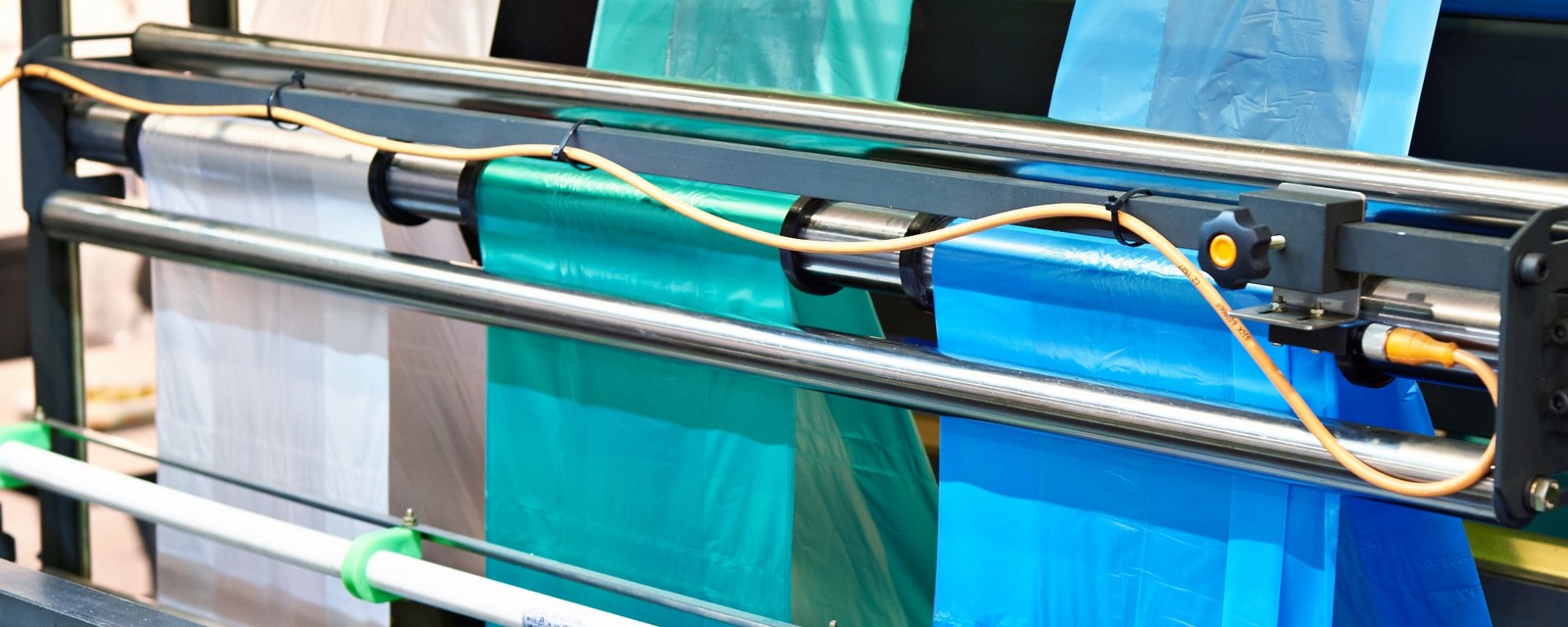
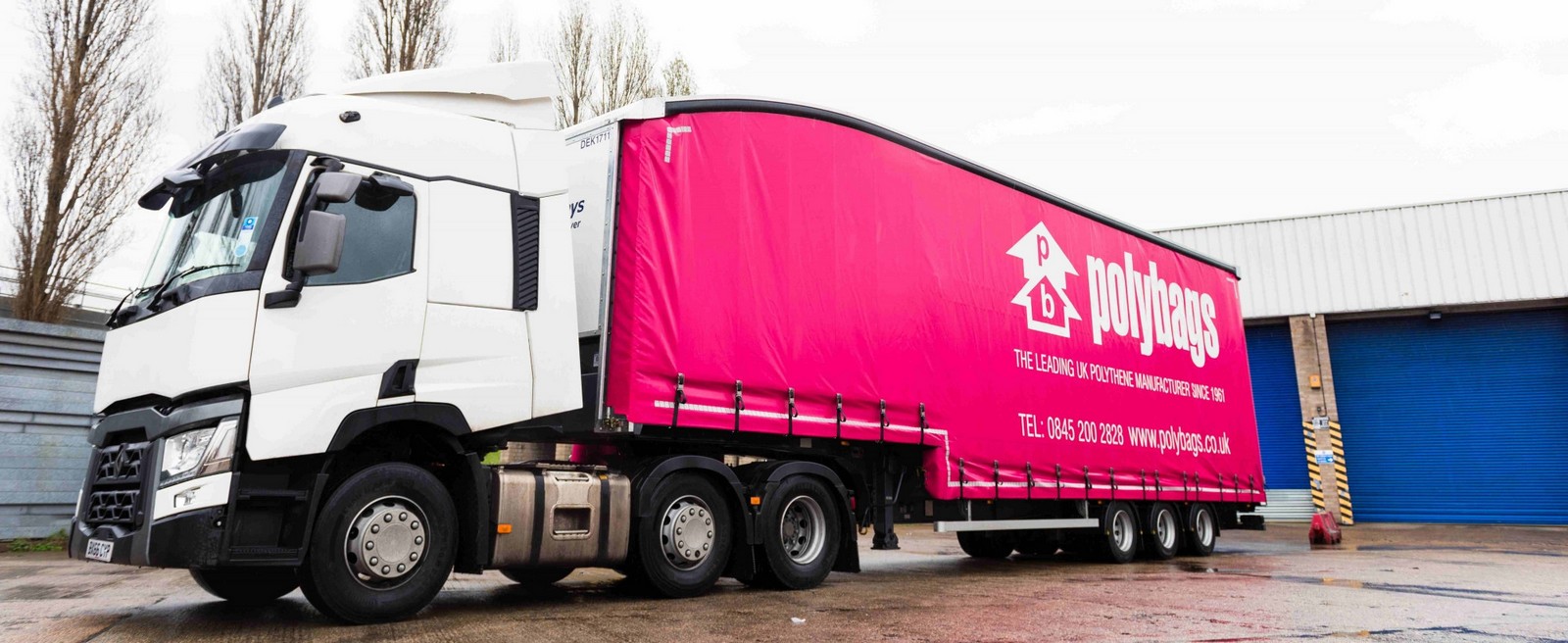
Materials
All polythene manufacturing begins with the raw materials used - the granules or pellets of polyethylene that are melted down and extruded to make polythene that is either kept in sheet form or converted into bags.
How the raw polyethylene - or an eco-friendly variant - is handled is crucial to the manufacturing process, so Polybags uses eight huge external silos to store and feed the raw materials into the extruders. This method ensures:
- A streamlined process managed by technology allowing our operators to focus entirely on the extrusion process
- Maximum hygiene levels for our products as the raw materials are kept free from contaminants throughout
- Reduced environmental impact, as raw materials can be delivered by tanker to the silos, which means fewer bags and pallets used and lower transportation emissions
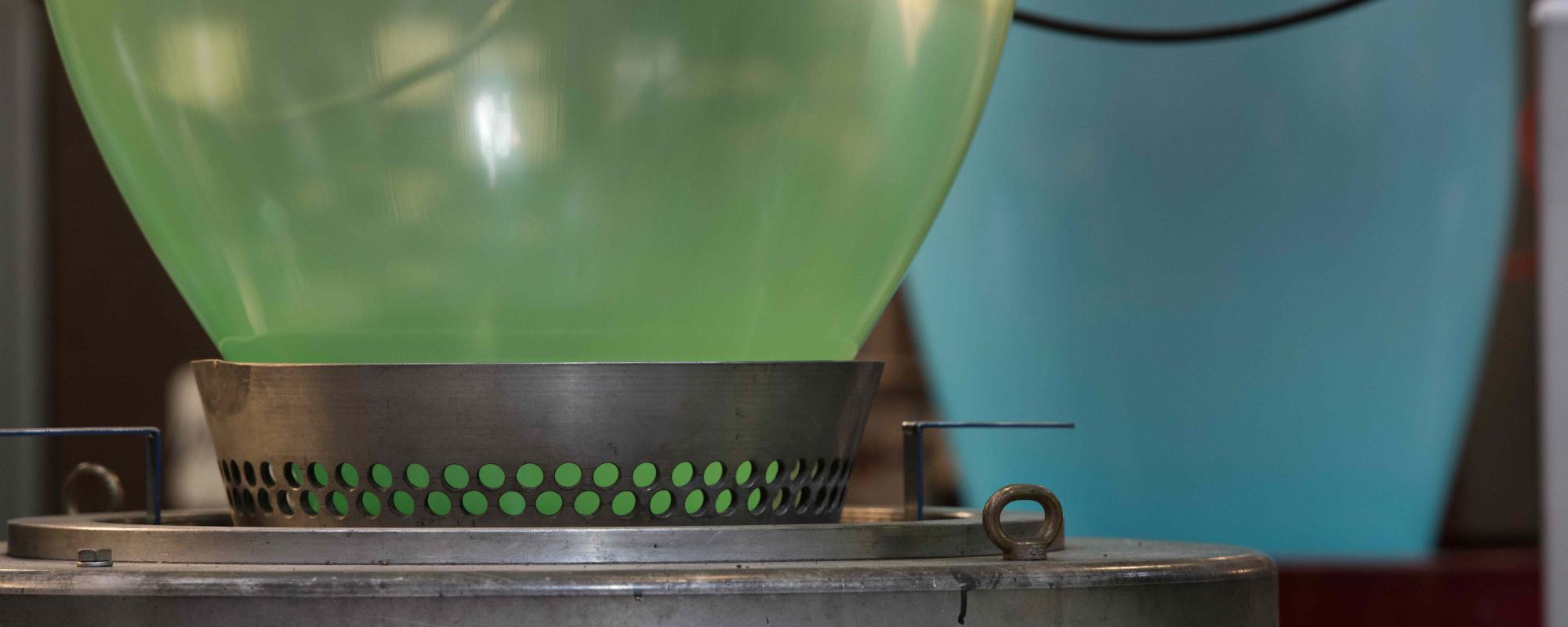
Types of polythene film
Polybags produces a variety of polythene and polypropylene film grades, each with slightly different properties. Using these alongside a selection of processing additives allows the production of film with very specific properties to suit the product in question.
The main types of film produced are:
- Standard melt 2 low density polythene (LDPE) film - The most common film grade contains an anti-blocking agent and a slip agent that helps produce strong bags with good clarity that are easy to handle and open. Food-grade approved. Used for: General packaging applications.
- Low slip melt 1 LDPE film - This film grade has greater molecular strength and no slip or anti-blocking agents, making it suitable for heavy duty and heat-shrink applications and is appropriate for when bags will be stacked. Used for: Shrink film and sack applications.
- High melt 4 LDPE film - This soft film, suitable for light-duty applications, is very flexible so we can use it to produce very thin films of 80 gauge (20 micron) or less, which can save significant quantities of film and reduce cost. Used for: Light-duty applications (e.g. garment covers).
- High tensile film - This polymer blend maximises strength in thin film. With a slight rough, crinkly feel, clarity and flexibility are inferior to other films but this is perfect for thin food-grade tint sheets and other tinted/coloured films. Used for: Applications maximising strength to thickness requirements.
- Metallocene blends - Film containing a metallocene catalyst are strong and provide high clarity. Manufactured in a different way to regular film, metallacone blends are more expensive by the finished product justifies the cost. Used for: Premium strength, high clarity films.
- Biodegradable film - Regular polythene film with an additive catalyst that accelerates the degradation process. This cost-effective, strong and recyclable film typically degrades in anything from a few weeks to two years, depending on the disposal environment. Used for: Eco-friendly packaging.
- PolyBio film - Polybags' range of compostable packaging is the most eco-friendly that we produce. Made from renewable resources, our PolyBio film contains no polythene and is both biodegradable and compostable, according to EU standards. Used for: Eco-friendly packaging.
- Electroconductive film - Antistatic film blends designed for handling and packaging static-sensitive components and electronics. Contains a conductive carbon element that dissipates electrostatic across the face of the polythene. Used for: Packaging for static-sensitive equipment.
- Reprocessed films - Recycled film is a low cost and eco-friendly solution to virgin polythene, although product quality is inferior. Polybags always recycle plastic waste when it is more energy-efficient than disposing of it. Used for: Low cost and low quality uses.

Want a specific type of film? Just ask!
In addition to the above, Polybags can supply other grades of film - including co-extruded polythene and polypropylene films - whilst we can also produce film specifically to meet your requirements.
We can manufacture to order film blends containing additives to give the film specific properties, such as a UV additive to prevent degradation of film stored outside or an EVA freezer-grade additive prevents film cracking at temperatures as low as -30°C.
If you want to add or remove a slip or blocking agent to your film, we can do that, whilst you can colour your film to the exact tint you need using our colour masterbatch additives. Whatever type of film you need, please get in touch and we'll do everything we can to meet your exact requirements.
Where to next?
Extrusion
The process by which polythene film is manufactured is known as blown film extrusion, or extrusion for short.
At Polybags, raw polymer is distributed from our storage silos via a feeding machine called a hopper into the machine that creates the polythene, which is called an extruder.
The polymer is forced through the extruder and, as it passes through its long, horizontally-mounted barrel, it is heated and melted into molten polymer, which is then forced upwards into the extruder die - two circular steel pipes placed one inside the other with a gap of approx 1mm.
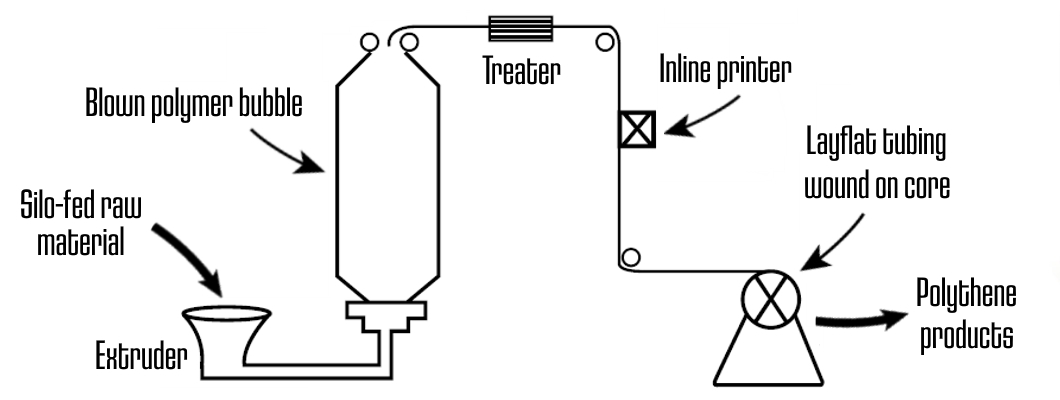
The molten polymer passes through the circular extruder die and up into a cooling tower, whilst air is forced through the middle of the circle to inflate the polythene into a tube of the required size.
At the same time, cold air is blown onto the tube to cool the polythene, which then passes from the cooling tower and is folded into a layflat tube before being drawn through a series of rollers. It may pass through a treatment point and printer if a design is being added to the polythene (see "Print & Art" section).
Before being wound onto a cardboard roll ready for dispatch, the layflat tube may be slit on one or both edges to produce a specific type of polythene sheeting product (see below), or it may be converted into a series of polythene bags (see "Conversion" section).
Polythene film products
The tube of polythene that leaves the extrusion line can be turned into a wide range of polythene film products, depending on how the polythene is cut and folded before being wound onto the roll. These products include:

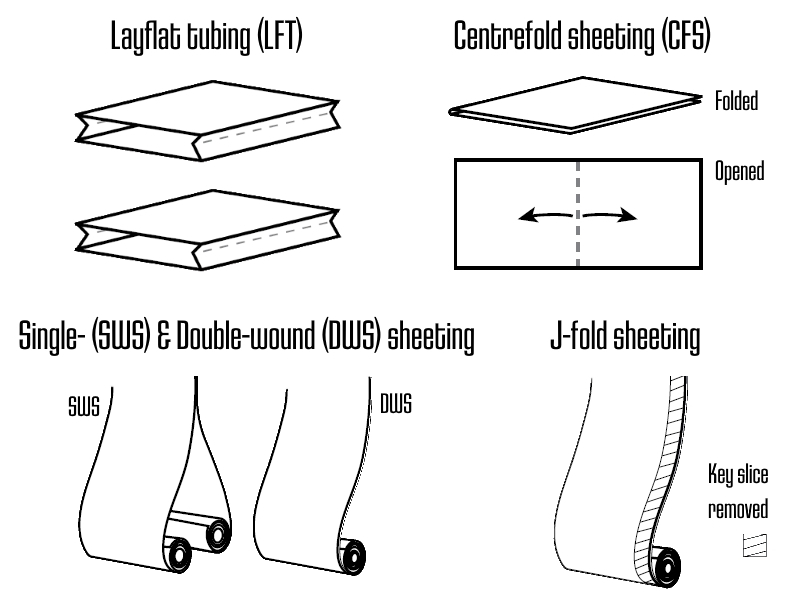
- Layflat tubing (LFT) - The starting point for all other types of polythene but also a useful product in its own right. Polybags use LFT to convert into a huge range of polythene bags or garment covers. We also sell it on the roll to customers which wish to use a heat sealer to make their own bags, or who need it to package products of awkward shapes and sizes.
- Centrefold sheeting (CFS) - Created by slitting a layflat tube down one side before winding onto the roll. When CFS is dispensed off the roll, it opens out into a sheet double the width of the folded polythene. CFS is used to make builders" rolls (or wide sheeting) - a popular product in the building industry due to its ability to cover large surface areas.
- Single-wound / Double-wound sheeting (SWS / DWS) - If you slit a layflat tube of polythene down both sides, you create two single sheets of polythene, one on top of the other. These can be either be wrapped around separate rolls to create SWS or wound together around the same roll to make DWS.
- J-fold sheeting (JFS) - Used mainly to manufacture polythene bags, JFS sees the layflat polythene slit down one side (as per CFS) but also cuts a small strip of polythene off the edge of one side of the CFS before winding it around the roll. The extra film on the other (longer) side of the CFS can then be converted into a flap or lip on the polythene bags produced.

24-hour production
Here at Polybags we run our polythene extrusion lines 24 hours a day, which provides a number of benefits:
- Lower costs - As there is more output from the same fixed costs
- Improved product quality - As extrusion equipment runs best when operated on a continuous basis
- Shorter lead times - 24-hour production gives us greater capacity to cope with more orders and more flexibility to prioritise urgent jobs
No job too big or small
Polybags is big enough to cope and small enough to care. We have the capacity to cope with the largest of jobs, whilst also being able to look after smaller orders in super-quick time.
We run a large number of extruders which, between them, feature a range of film treaters, in-line printers, double unwinds for sheeting production and wide winders for jumbo take-off units.
We specialise in short run and narrower width films and always ensure that we have at least two extruders with the capability to produce every product size. This gives us maximum flexibility in our production planning to ensure we can meet all lead times.
Furthermore, all of our manufacturing equipment is linked to our sales with a real time scheduling system. This means we get immediate information on lead times and can make adjustments where required, to prioritise urgent jobs. Ask our sales team about the system - they love it!
Polybags' film-manufacturing capabilities
- Film width: 1" to 55" / 25mm to 1,400mm (or max 50" / 1,270mm if flat ungusseted film required)
- Film thickness: 100 - 1,000 gauge / 25 - 250 micron (or min 80 gauge / 20 micron in special high melt films)
- Max weight: 600g for polythene rolls above 40" width
Where to next?
Printing and artwork
Polybags are manufacturers, so we can make products exactly as you need them.
This includes a printing service that allows us to personalise a huge range of products with your company branding or in any way you need - i.e. with a seasonal design or a promotional message.
You can get an instant online quote on printed carrier bags and printed mailing bags but we can also tailor a range of our other products in line with your requirements.
Just tell us what you need and we'll give you a free no-obligation quotation.
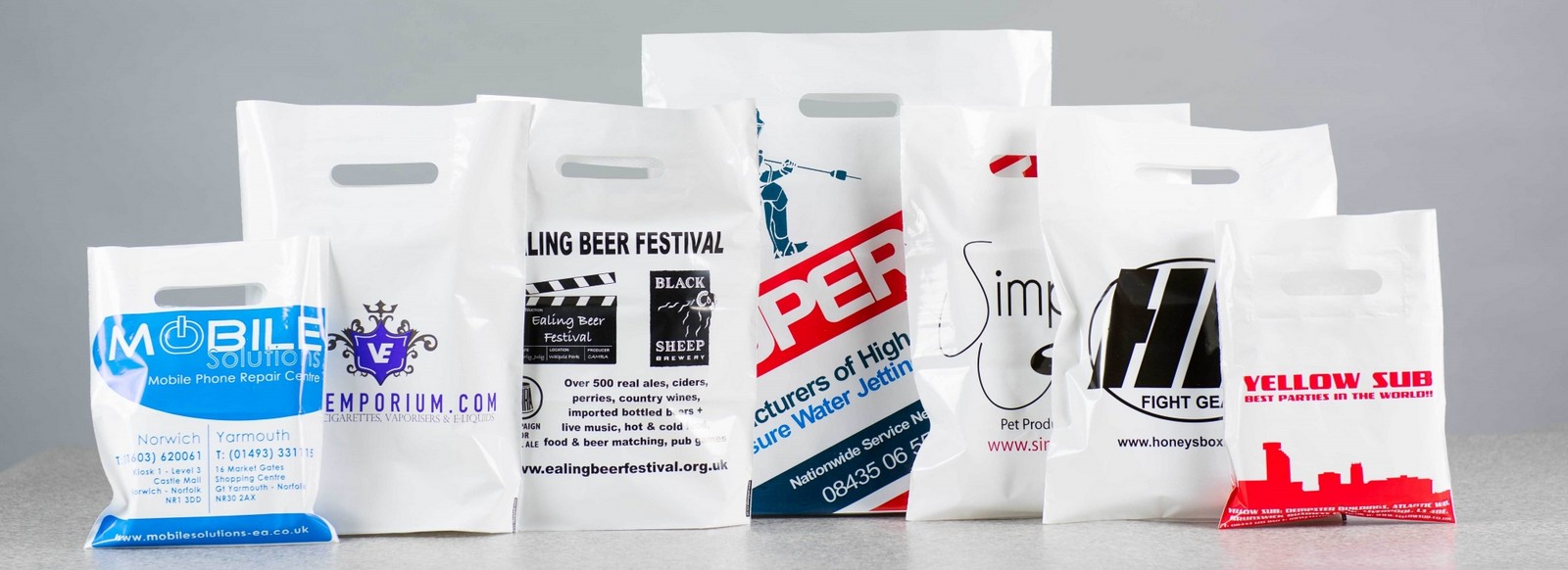
The printing process
Polythene printing takes place after the layflat tube of polythene has cooled and as it leaves the extruder, before being wound onto the roll. Alternatively you can use a pre-extruded roll of laylat tubing, winding it off the roll and through the printer before winding onto another roll.
Either way, the polythene film that reaches the printing station will be pulled tight around various sets of rollers to provide enough tension to treat and print the polythene, as well as seal and cut them to size (see 'Conversion' section).
Prior to printing the polythene first passes through a treatment point, which primes the surface of the polythene so that the printer ink forms a cleaner, sharper and more long-lasting bond with the polythene.
Once primed, the polythene then passes through the printer itself, which is pre-programmed with the relevant design for the product in question, tailor-made to the customer's design and signed-off by them (see 'Your design. Your way' below for more details).
The personalised design is printed onto the polythene at regular intervals, precisely located to match to where the polythene will be cut and/or sealed during the bag-making process (see 'Conversion' section).
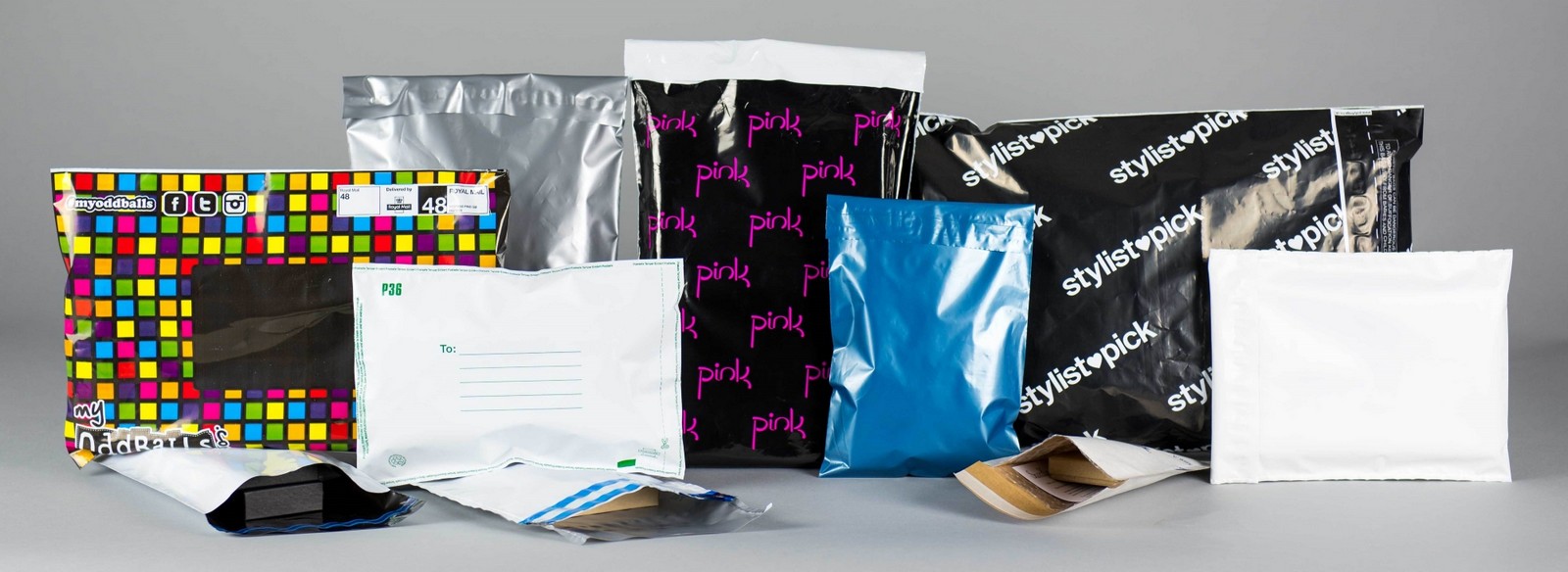
Your design. Your way
So you're ready to take your business packaging to the next level, but how should you do it?
Well, how you design your packaging is up to you. Company logos, colours and fonts are an obvious starting point to reinforce your brand.
But you might want carrier bags with a seasonal design, mailing bags with a promotional message or perhaps garment covers with just your company name and contact details. The choice is yours.
You can print on one or both sides of the bag, in a single monochrome design on any colour polythene or, if you choose a white or clear bag, in up to four colours (please note: using four colours - known as full-colour printing - is much more complicated and so costs a lot more than using three colours or fewer).
Polybags provide instant online quotes 24 hours a day, seven days a week on printed carrier bags and printed mailing bags.
We like to keep things simple, fast and cheap, so we just need a few details, including the number and size of bags you want and how many colours you wish to print with (we don't even need to know which actual colours you wish to use at this stage).
The process takes no more than 60 seconds, so what not try it out today? We think you'll be surprised how reasonable our prices are!
Where to next?
Conversion
When making polythene bags, the next crucial phase of the manufacturing process after extruding the polythene is conversion - i.e. when you convert the tube of polythene into a collection of bags.
Polythene can be converted into bags either immediately after it leaves the extrusion line after cooling or from a pre-wound roll of polythene film, if extruded at an earlier date.
This conversion film stock - made up of popular widths and thicknesses of film - helps to ensure quick lead times for Polybags customers by allowing us to produce an order of bags on urgent request, rather than have to wait for the film to be extruded first.
Whether the film is delivered to the conversion line directly from the extrusion line or from a roll of conversion film stock, the polythene is stretched around a series of rollers first to ensure that it is sufficiently taut before conversion begins.
Polybags can customise any bags with a company's own design printed onto the bags. If this option is chosen, the bags are first treated and then printed before they enter the conversion line (see 'Print & Artwork' section).
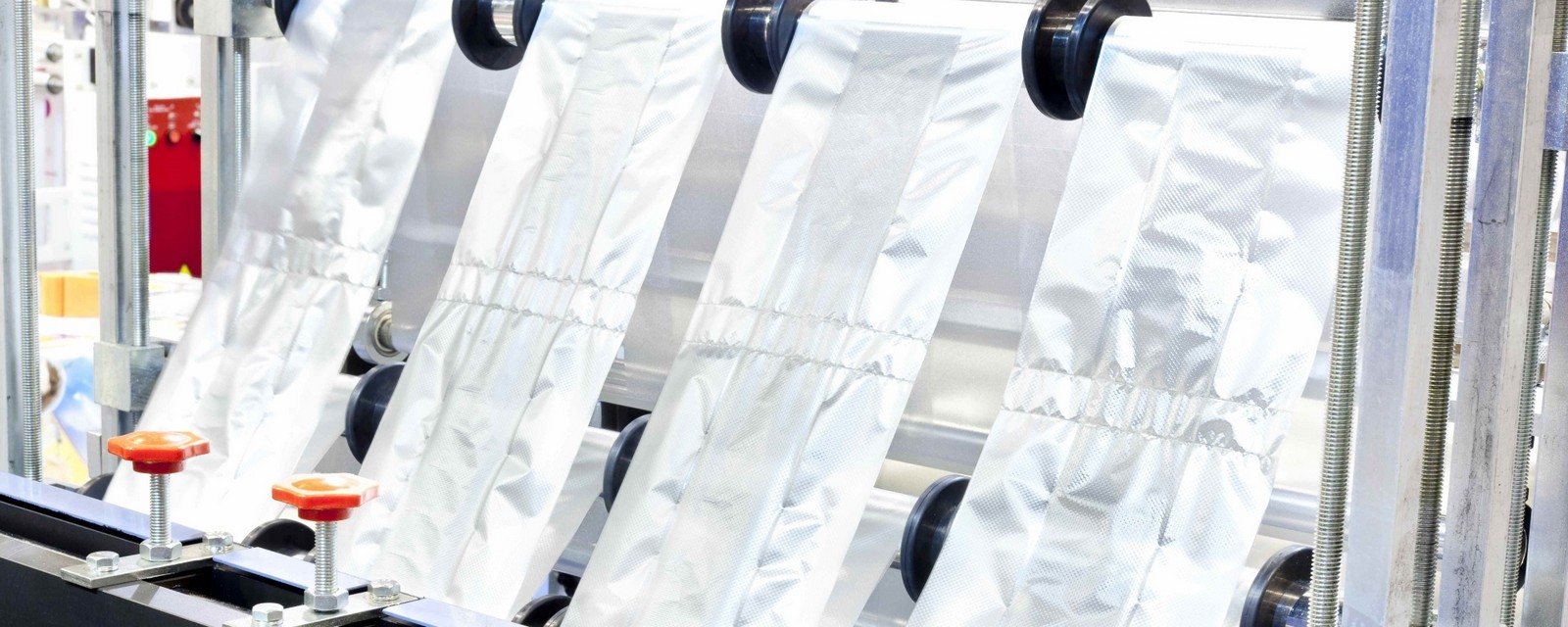
Cutting edge technology
Polybags runs a large number of conversion lines to match our 24-hour extrusion. This allows us to maximise flexibility around the clock, so we can cope with massive jobs and small orders at the same time, whilst keeping operation costs low for everyone.
Our converting machines allow for both bottom-weld and side-weld bag production, whilst catering for perforation, handle cut-outs, magic eyes for print register work and the application of adhesive glue strips in the production of peel and seal bags (e.g. mailing bags).
All of this means we can make polythene bags pretty much as you want them. If you can't find the bag for you in the Polybags shop then just tell us what you need and we can make them for you!
To help you decide, here's a quick overview of some of the more popular features we could add to a polythene bag for you.

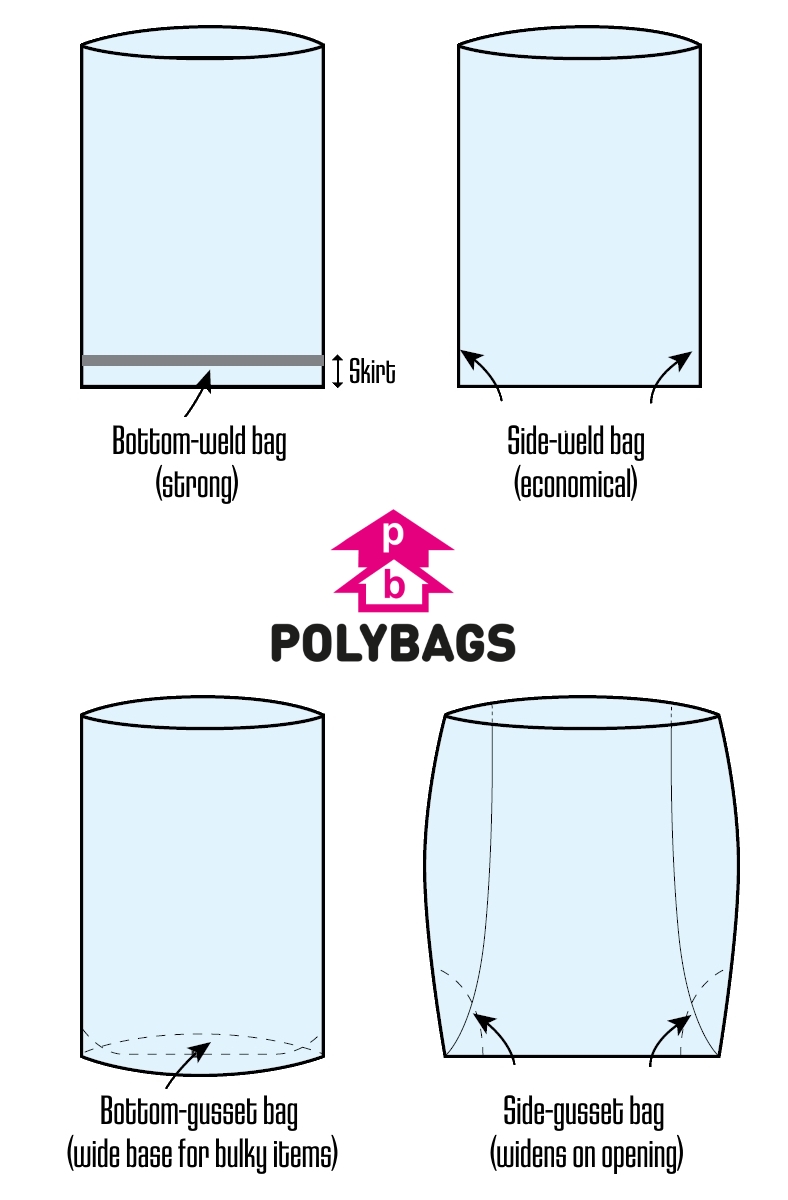
Polythene bag welds & gussets
Polythene is converted into polythene bags by being drawn through a conversion machine, which repeatedly cuts the bags to exactly the same size whilst, at the same time, welding each bag shut in one of the following ways:
- Bottom-weld bags - Created using a tube of layflat polythene, which is welded across the width of the tube as it passes through the conversion machine. This strong weld forms the base of the bag, which is then cut to length as the next bag is welded at the bottom. Bottom-weld bags (or bottom-seal bags) are generally stronger than side-seal bags.
- Side-weld bags - Created using centrefold sheeting, the fold in the sheeting forms the base of the bag which is welded together on both sides and cut to size as the sheeting passes through the conversion machine. The open side of the centrefold sheet then forms the opening of the bag. Side-weld bags (or side-seal bags) cost less to produce but are not as strong as bottom-weld bags.
A couple of other terms which are important in the bag-making process:
- Skirts - The skirt is the strip of polythene between where a bag is cut and where it is welded together, found either below the base of the bag (in bottom-weld bags) or running up each side of the bag (in side-weld bags).
- Gussets - A gusset is an extra section of polythene folded into a bag that then opens out when the bag is opened to provide extra capacity for large or bulky items. Gussets can be added to a bag either along both sides (side gusset), at the base (bottom gusset) or both.

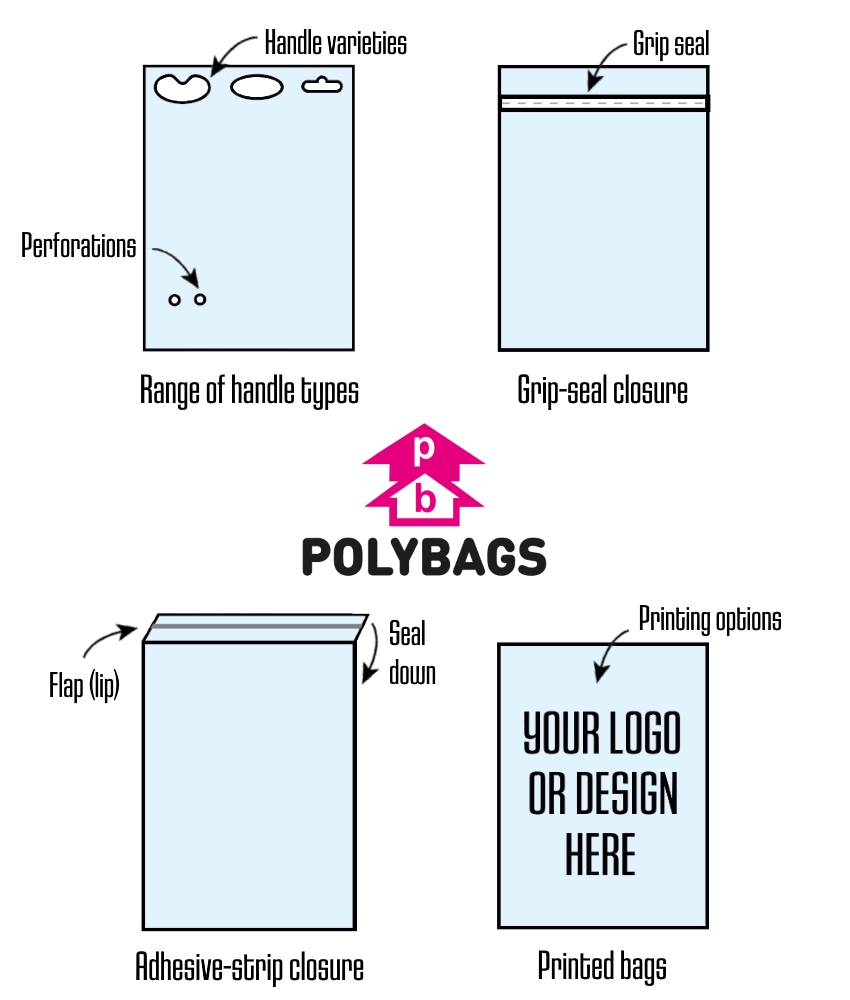
Handles & seals
As well as cutting and welding the bags in the correct place, conversion machines also provide all of the necessary features for the polythene bag to be worthy of the name.
As each bag works its way down the conversion line, handles are formed using a heated tool - in the same shape as the desired handle - which melts and punches through the same place in each bag in turn. Some handles are reinforced with an extra polythene to strengthen them.
Ventilation can be added to a bag if required using perforation holes - usually approx. 6mm in size - which are cut using the same method as a handle.
If a bag requires a seal, these can also be added during the conversion process. Polythene bags can be sealed in a variety of ways, but the three most popular types of seal used by Polybags are as follows:
- Adhesive seal (single-use) - Found on what are commonly as 'peel & seal' bags, these seals are made with a strip of double-sided adhesive attached to the lip of the bag (see 'J-fold sheeting', above) and then covered in a thin plastic film. Simply peel away the film, fold the lip down and press to seal. Bags with this type of seal - such as mailing bags - can be used only once as they have to be cut or ripped open.
- Grip seal (resealable) - A grip seal is reusable plastic seal that is heat-bonded to the opening of a bag during the final stages of the conversion process. The seal features a single plastic strip running along one side of the bag opening, and an opposing double-strip on the other side. By squeezing the two sides together, the double strip grips the single to seal the bag shut, whilst a gentle tug will pull the bag open, ready to be used again.
- Zip seal (resealable) - The zip seal is similar to the grip seal, but features an external zip or clip which seals the two sides of the bag together as it is pulled in one direction, and loosens the seal to open the bag when pulled in the opposite direction.
Where to next?
Delivery systems
Once the manufacturing process is complete, Polybags' finished products are either sent straight for dispatch to the customer or immediately packed and stored in our warehouse.
As orders are processed they are entered into our in-house order tracking software, which provides real-time information on order progress and dispatch dates for all orders.
Our delivery systems are set up to deal with a huge range of orders, which can vary in size from a small box to many pallets' worth of products. Whatever size your order, the Polybags team do everything we can to ensure it reaches you in a timely manner and in perfect physical condition.
As each dispatch note is printed out in the warehouse, orders are assigned to one of five national couriers, depending on the size of the order.
Smaller orders are picked immediately, wrapped or boxed according to the contents of the order and placed into a cage for maximum protection. This cage is directly loaded onto the courier's transport and sent out for delivery.
Large orders which require loading onto pallets are collated, labelled and stretch-wrapped in-house before being loaded onto the courier lorry. We restrict pallet height to sensible levels and use a variety of pallet types or sizes to meet the customer's needs.
We work with five of the UK's most trusted couriers which, combined with our first class packaging - using high quality boxes, roll wrapping and pallet wrapping - ensures that we receive practically no complaints due to damage in transit.

Delivery options
Polybags provides fast and free delivery across the UK.
Our standard delivery service takes 2-3 days and is always free for any order across England, Wales and most of Scotland. A minimum order value may apply for parts of Scotland (Highlands, Isles), the Channel Islands, Isle of Man and across Ireland (NI and ROI).
For urgent orders, we provide a range of next-day and express delivery options to meet your needs and required timescales. See our UK & Ireland delivery options for full details.
Polybags also delivers worldwide. Please visit our delivery calculator select your country for a list of all delivery options available to you, including timescale and delivery cost.
If you would prefer to collect your goods from Polybags HQ, that is also fine. A number of our larger or merchant customers already choose to do this. We simply confirm with you when the goods are ready and you can collect them any time during business hours. We are conveniently located just off the A40 and only eight miles north of the M25.
Where to next?
FREE DELIVERY

320mm wide x 406mm length, 55 micron thickness. (Small Parcel).
From £22.69 per 200
Bio and 100%-recycled mailing bags in low quantity handypacks.


